
Adana: The Heartbeat of Southern Turkey
Adana, the fifth largest city in Turkey, offers a rich blend of history, culture, and natural beauty. Located on the Seyhan River, this vibrant city is a fascinating destination for tourists seeking both modern comforts and ancient wonders. The city's history spans over 3,000 years, making it a treasure trove of archaeological sites and historical landmarks. Start your journey at the iconic Sabancı Central Mosque, one of the largest in the Middle East, with its intricate architecture and serene surroundings. For history enthusiasts, the ancient city of Anavarza and the Roman bridge of Taşköprü are must-visit sites that provide a glimpse into Adana's storied past. The Adana Archaeology Museum also offers an extensive collection of artifacts that narrate the region's rich history. Food lovers will relish Adana's culinary scene, famous for its spicy Adana kebabs and delectable local dishes. The city's bustling bazaars and markets, such as the Kazancılar Çarşısı, are perfect for sampling local flavors and shopping for unique souvenirs. Don't miss out on trying the local dessert, bici bici, a refreshing treat especially popular during the hot summer months. Nature enthusiasts will find solace in the beautiful parks and green spaces that dot the city. The Seyhan Dam and Lake provide opportunities for boating and picnicking, while the nearby Taurus Mountains offer hiking trails with stunning views. Adana's vibrant festivals, such as the International Orange Blossom Carnival, add a festive flair to any visit, making it a city that truly has something for everyone.
Local tips in Adana
- Visit during spring or autumn to enjoy milder weather and local festivals.
- Try the local delicacies at small, family-run restaurants for an authentic taste.
- Carry cash as many local markets and smaller establishments may not accept credit cards.
- Use public transportation or taxis to get around; the city is well-connected.
- Learn a few basic Turkish phrases to enhance your interactions with locals.
Adana: The Heartbeat of Southern Turkey
Adana, the fifth largest city in Turkey, offers a rich blend of history, culture, and natural beauty. Located on the Seyhan River, this vibrant city is a fascinating destination for tourists seeking both modern comforts and ancient wonders. The city's history spans over 3,000 years, making it a treasure trove of archaeological sites and historical landmarks. Start your journey at the iconic Sabancı Central Mosque, one of the largest in the Middle East, with its intricate architecture and serene surroundings. For history enthusiasts, the ancient city of Anavarza and the Roman bridge of Taşköprü are must-visit sites that provide a glimpse into Adana's storied past. The Adana Archaeology Museum also offers an extensive collection of artifacts that narrate the region's rich history. Food lovers will relish Adana's culinary scene, famous for its spicy Adana kebabs and delectable local dishes. The city's bustling bazaars and markets, such as the Kazancılar Çarşısı, are perfect for sampling local flavors and shopping for unique souvenirs. Don't miss out on trying the local dessert, bici bici, a refreshing treat especially popular during the hot summer months. Nature enthusiasts will find solace in the beautiful parks and green spaces that dot the city. The Seyhan Dam and Lake provide opportunities for boating and picnicking, while the nearby Taurus Mountains offer hiking trails with stunning views. Adana's vibrant festivals, such as the International Orange Blossom Carnival, add a festive flair to any visit, making it a city that truly has something for everyone.
When is the best time to go to Adana?
Iconic landmarks you can’t miss
Stone Bridge
Discover the Stone Bridge in Adana, a historic marvel connecting the past and present with stunning views and rich cultural heritage.
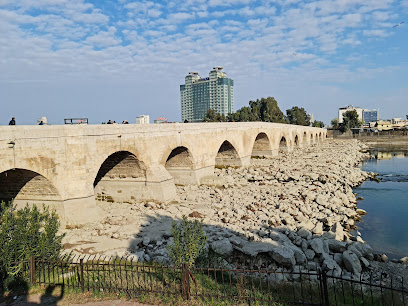
Seyhan Merkez Park
Discover the lush landscapes and cultural charm of Seyhan Merkez Park, a tranquil escape in Adana's urban heart.
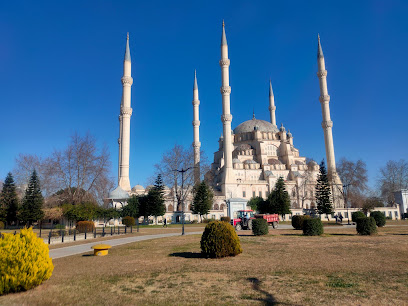
Ataturk Park
Discover the beauty of Ataturk Park in Seyhan, Adana—an urban oasis perfect for relaxation, leisure activities, and cultural experiences.
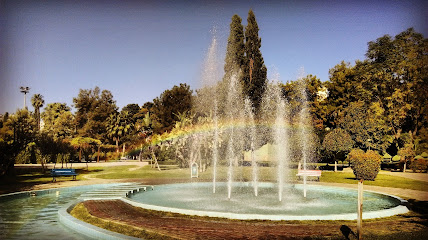
Great Clock Tower
Discover the Great Clock Tower, a historical landmark in Adana, where culture, architecture, and tradition meet in a vibrant atmosphere.
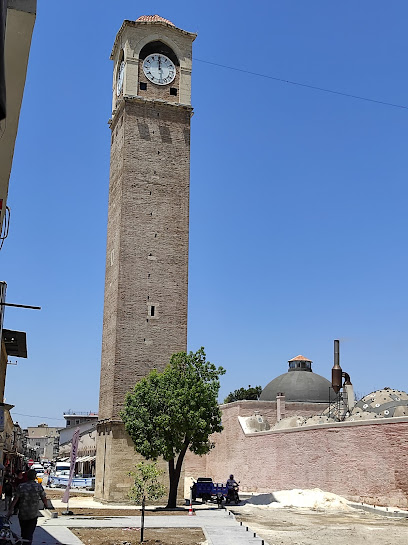
Tarihi Küçük Saat
Discover the charm of Tarihi Küçük Saat, a historic clock tower in Adana that embodies the city's rich heritage and vibrant culture.
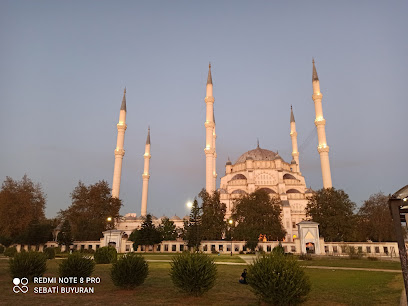
Adana Grand Mosque
Explore the grandeur of Adana Grand Mosque, a stunning symbol of Islamic architecture and cultural heritage in Turkey.
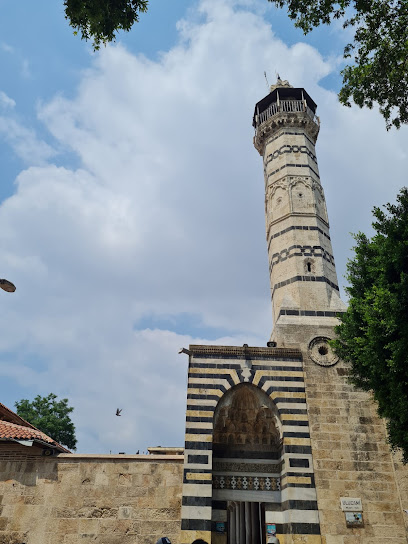
Adana Cinema Museum
Explore the rich history of Turkish cinema at the Adana Cinema Museum, a captivating destination for film enthusiasts in Turkey.
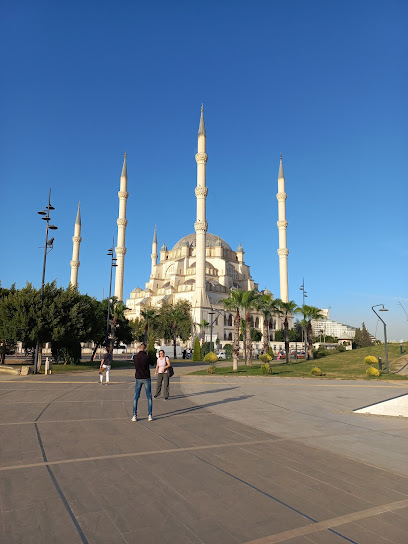
Sakıp Sabancı Dinazor Parkı
Explore Sakıp Sabancı Dinosaur Park: A perfect blend of fun and education with life-size dinosaur replicas in beautiful green surroundings.
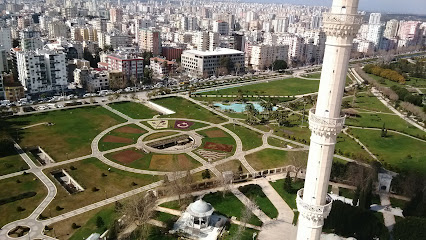
Tarihi Kazancilar Çarşısı
Explore Tarihi Kazancilar Çarşısı, a historic market in Adana, blending shopping, culture, and authentic local cuisine in a vibrant atmosphere.
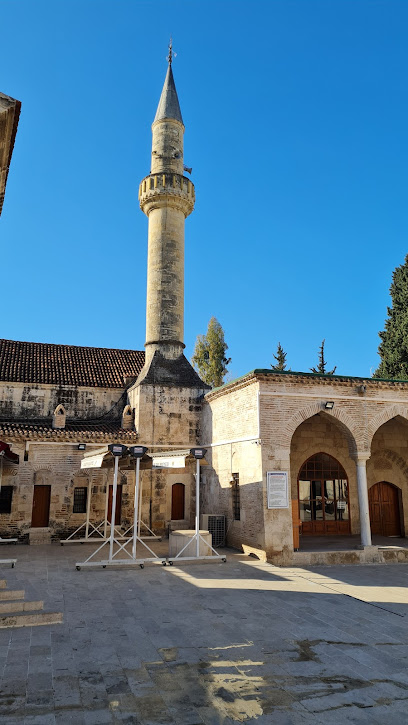
Yag Mosque
Discover the tranquil beauty and rich heritage of Yag Mosque, a must-visit architectural wonder in Adana, Turkey.
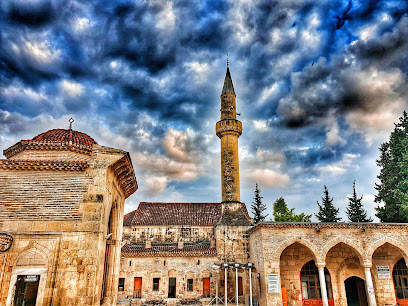
Ramazanoğlu Madrasa
Explore the Ramazanoğlu Madrasa, a historic landmark in Seyhan, Adana, showcasing exquisite Ottoman architecture and rich cultural heritage.
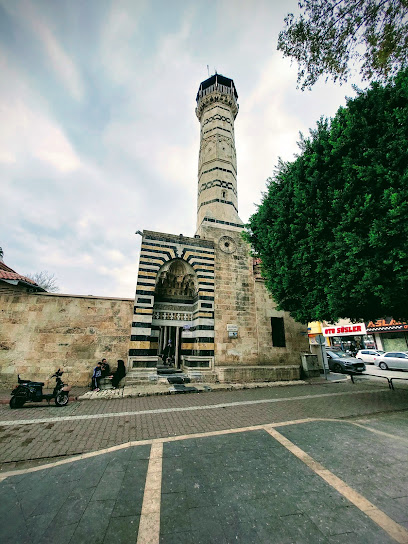
Bebekli Church (St. Paul Catholic Church)
Discover the historic Bebekli Church in Adana, a serene Catholic sanctuary with stunning architecture and rich cultural significance.
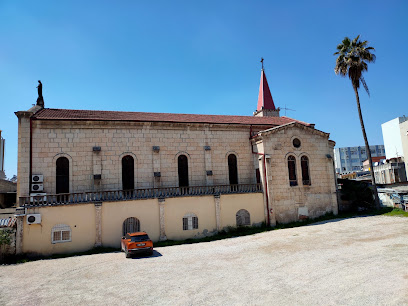
Love Island
Experience tranquility and natural beauty at Love Island, a serene escape at Seyhan Baraj Lake, perfect for relaxation and picturesque views.
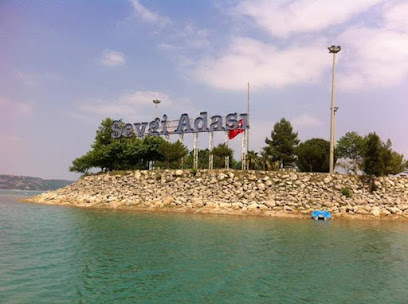
Seyhan Cultural Center
Explore the Seyhan Cultural Center, a vibrant civic hub in Adana, where art, culture, and community come alive in a welcoming atmosphere.
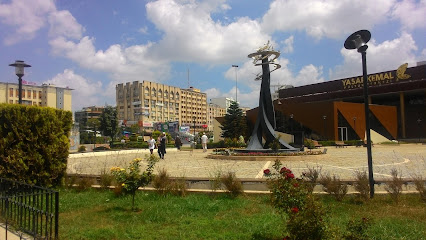
Ziyapaşa Parkı
Experience the lush beauty and tranquil atmosphere of Ziyapaşa Parkı, a must-visit urban oasis in the heart of Adana, Turkey.
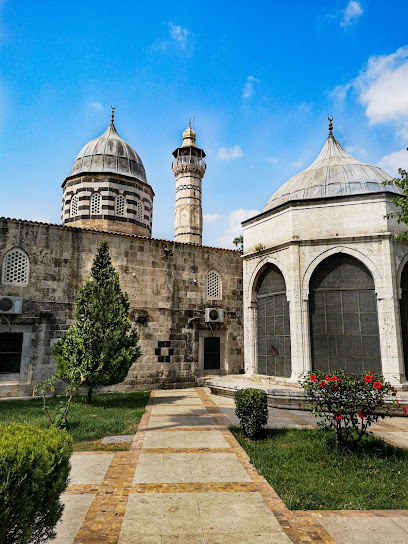
Unmissable attractions to see
Stone Bridge
Explore the historical Stone Bridge in Adana, a stunning architectural marvel bridging both history and contemporary charm.
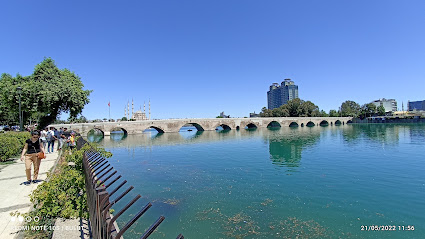
Seyhan Merkez Park
Discover the serene beauty of Seyhan Merkez Park in Adana, where lush landscapes and tranquil waters create a perfect escape for tourists and nature lovers alike.
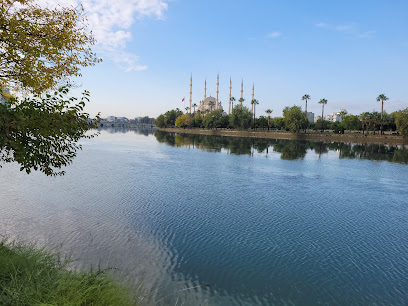
Ataturk Park
Explore Ataturk Park in Adana – a lush, tranquil escape with scenic walks, family activities, and rich cultural experiences in a vibrant urban oasis.
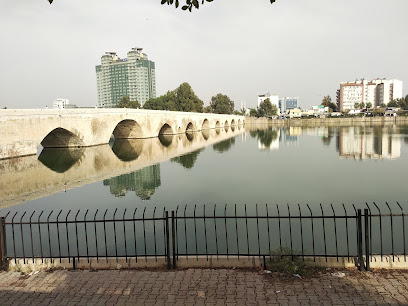
Sabanci Central Mosque
Explore the breathtaking beauty and cultural significance of the Sabanci Central Mosque in Adana, a marvel of Islamic architecture and a serene retreat.
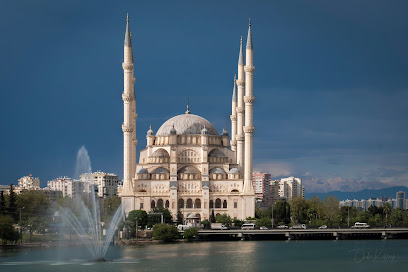
Varda Viaduct
Discover the breathtaking Varda Viaduct in Adana, Turkey – a historical landmark and architectural marvel amidst stunning natural beauty.
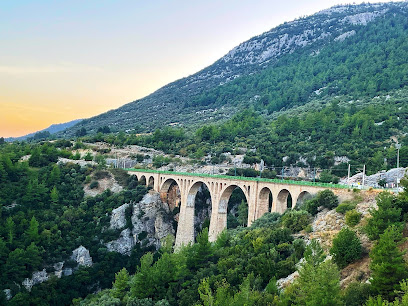
Adana Grand Mosque
Discover the Adana Grand Mosque, a stunning blend of history, architecture, and spirituality in the heart of Adana, Turkey.
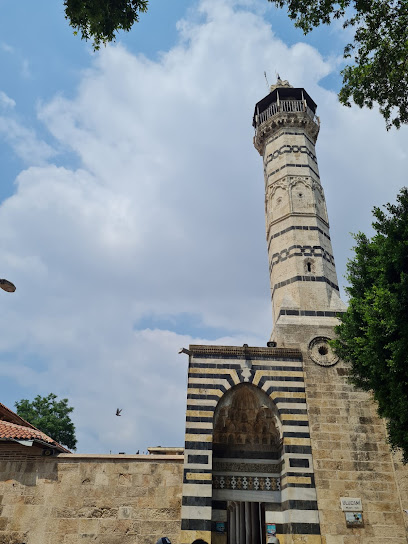
Adana Archaeology Museum
Explore the Adana Archaeology Museum, where ancient history comes alive through captivating exhibits and remarkable artifacts from the region's rich past.
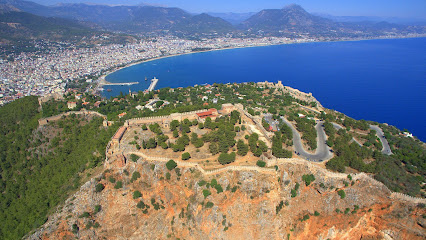
Adana Cinema Museum
Explore the vibrant history of Turkish cinema at the Adana Cinema Museum, where film meets culture in a beautifully restored setting.
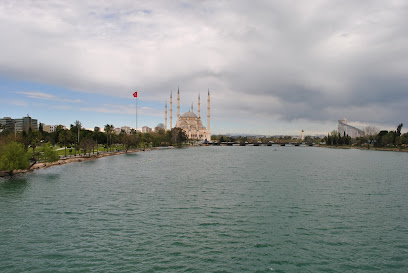
Sakıp Sabancı Dinazor Parkı
Discover the enchanting Sakıp Sabancı Dinazor Parkı, where nature meets the thrill of dinosaurs in the heart of Çukurova, Adana.
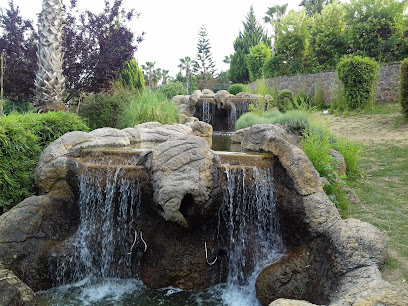
Kozan Castle
Explore the majestic Kozan Castle, a stunning historical fortress offering breathtaking views and a deep dive into the rich heritage of Adana Province.
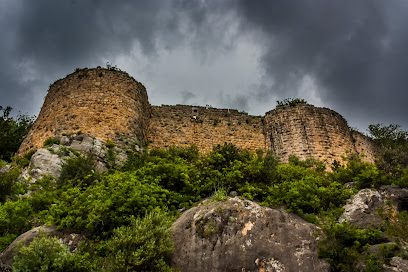
Tarihi Kazancilar Çarşısı
Explore Tarihi Kazancilar Çarşısı, a vibrant market in Adana offering unique shopping, delicious local cuisine, and rich cultural experiences for all tourists.
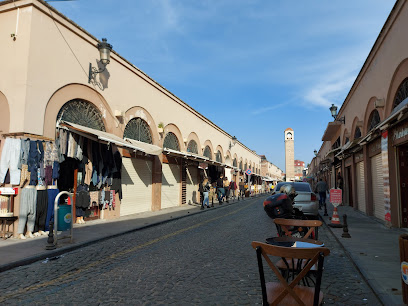
Yag Mosque
Explore the Yag Mosque in Adana, where Ottoman architecture meets spiritual serenity amidst a vibrant cultural backdrop.
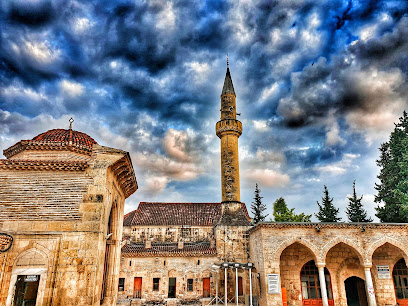
Akyatan National Park
Discover the untouched beauty of Akyatan National Park in Karataş, Adana, where nature lovers find serenity and adventure amidst stunning landscapes.
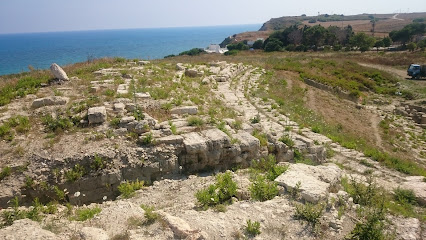
ABB-Dilberler Sekisi ve Parkı
Experience tranquility at ABB-Dilberler Sekisi Park, a serene escape in Adana featuring lush landscapes and family-friendly playgrounds.
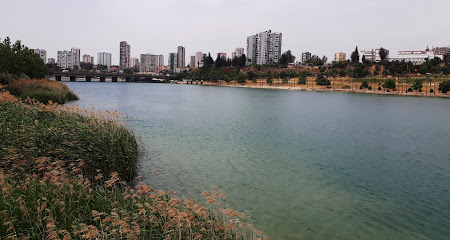
ABB-Yeşilyurt Spor Parkı
Experience relaxation and recreation at ABB-Yeşilyurt Spor Parkı in Çukurova, Adana - a perfect escape for tourists looking to unwind.
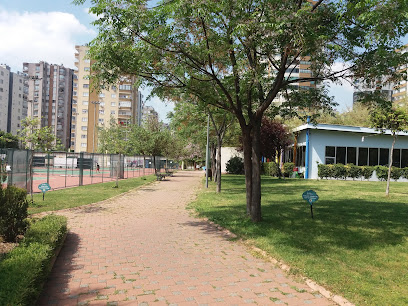
Essential places to dine
Kazım Büfe
Discover Kazım Büfe in Seyhan: A delightful soft drinks shop offering tasty fast food and local flavors at moderate prices.
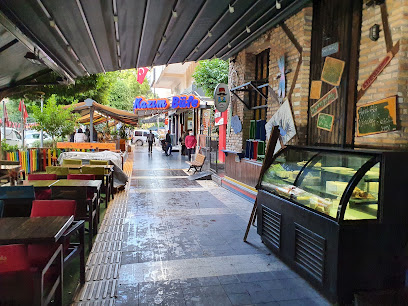
Kaburgacı Yaşar Usta
Discover authentic Turkish kebabs at Kaburgacı Yaşar Usta - where flavor meets tradition in Adana's vibrant dining scene.
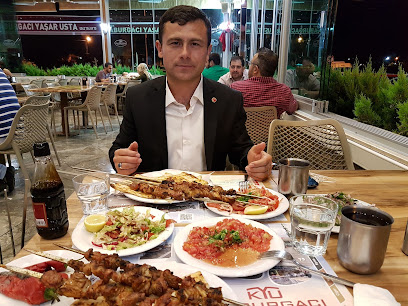
Sirdanci Bedo
Discover Sirdanci Bedo in Adana – where authentic Turkish flavors meet a vibrant dining atmosphere.
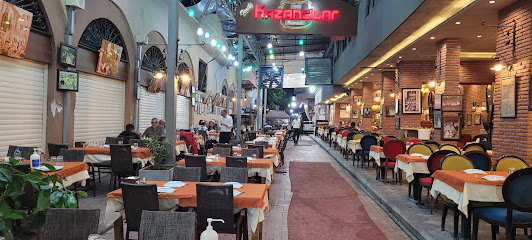
Ciğerci Ulaş
Experience authentic Turkish cuisine at Ciğerci Ulaş in Adana - where every kebab tells a story.
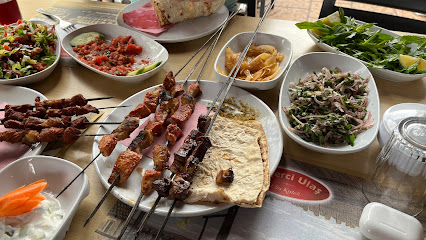
Kebapçı Şeyhmus
Savor authentic Adana kebabs at Kebapçı Şeyhmus, where tradition meets taste in an inviting atmosphere.
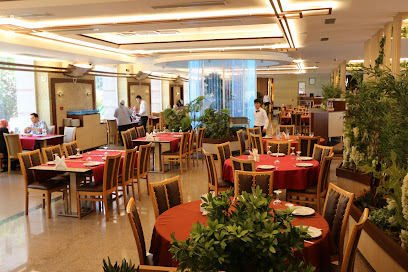
Tarihi Büyüksaat Ciğercisi Memet Usta
Experience authentic Turkish cuisine at Tarihi Büyüksaat Ciğercisi Memet Usta in Seyhan - where tradition meets flavor.
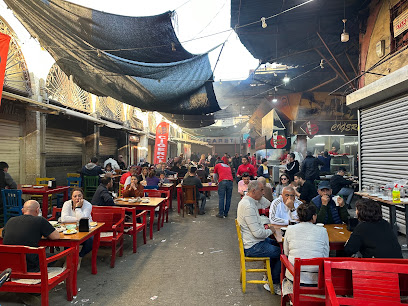
Kaya Kebap
Experience the authentic taste of Turkish cuisine at Kaya Kebap in Seyhan, Adana – a culinary haven for kebab enthusiasts.
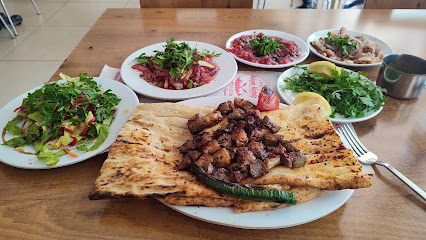
Kebapçı Cik Cik Ali
Experience authentic Turkish kebabs at Kebapçı Cik Cik Ali in Seyhan – where tradition meets flavor in every bite.
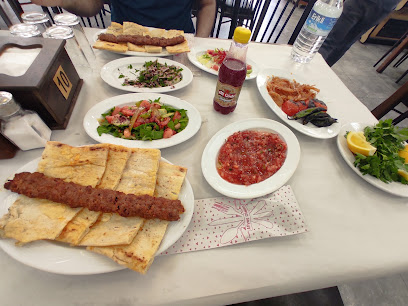
Eyvan Kebap
Savor the essence of Turkey at Eyvan Kebap - home to delicious Adana kebabs and warm hospitality in Seyhan.
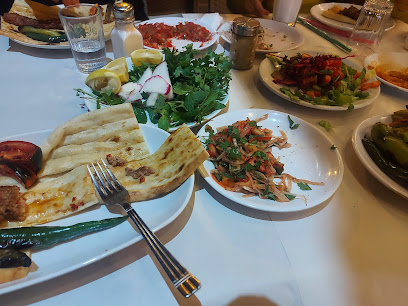
Kasrı Kervan Kebap
Discover authentic Turkish flavors at Kasrı Kervan Kebap in Adana – where every bite tells a story.
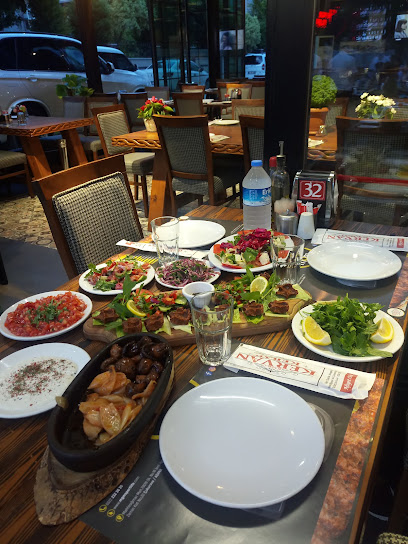
Otel Seyhan Restauran
Experience authentic Turkish flavors and warm hospitality at Otel Seyhan Restaurant in Seyhan, Adana.
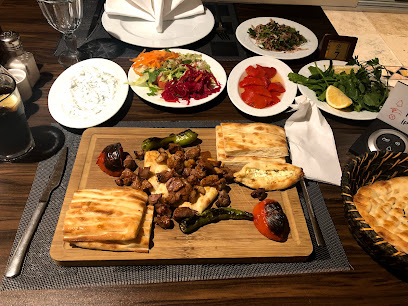
Mert Restaurant
Experience authentic Turkish cuisine at Mert Restaurant in Seyhan - where tradition meets flavor.

Oz Asmaalti Kebap Salonu
Discover Oz Asmaalti Kebap Salonu: A premier destination for authentic kebabs in Seyhan, Adana—experience rich flavors and warm hospitality.
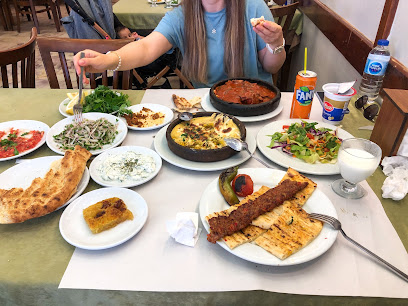
Elem Restoran Havutlu
Experience authentic Turkish and Mediterranean flavors at Elem Restoran Havutlu in Yüreğir, Adana - a family-friendly dining destination.
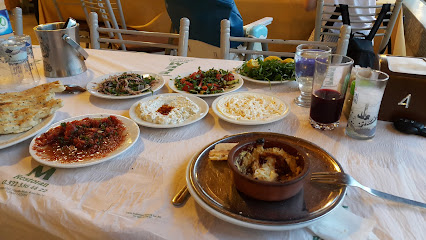
BigChefs Adana
Experience exquisite dining at BigChefs Adana – where traditional Turkish flavors meet modern culinary excellence in a stylish setting.
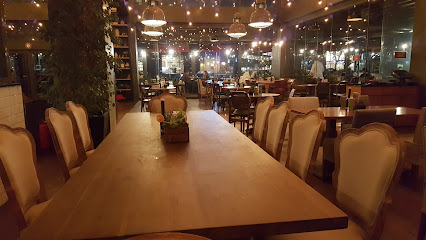
Markets, malls and hidden boutiques
Adana Optimum AVM
Discover Adana Optimum AVM: A vibrant shopping mall offering a unique blend of retail, dining, and entertainment experiences in the heart of Adana.
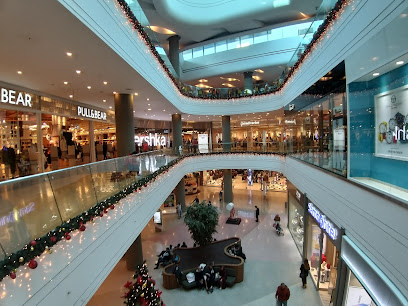
M1 Adana Shopping Center
Explore M1 Adana Shopping Center - your ultimate shopping and entertainment destination in Seyhan, Adana, blending local culture with modern retail experiences.
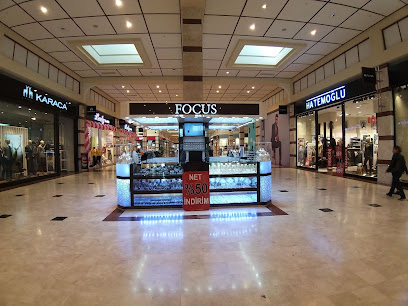
Cakmak Plaza Alisveris Merkezi
Discover Cakmak Plaza in Adana - a vibrant shopping mall with diverse stores, dining options, and a family-friendly atmosphere for all.
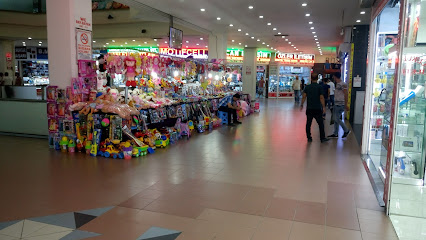
Grand Bazaar
Discover the Grand Bazaar in Seyhan, a vibrant shopping mall showcasing local crafts, spices, and traditional Turkish hospitality in Adana.
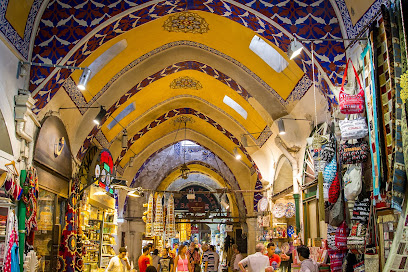
DEME HEDİYELİK EŞYA
Explore the vibrant gift shop of DEME HEDİYELİK EŞYA in Seyhan, a perfect spot for unique souvenirs and local crafts from Adana.
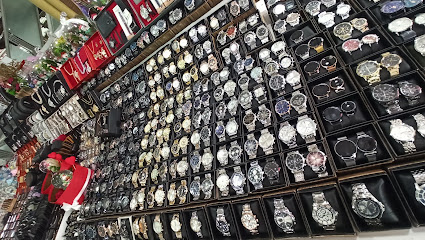
Adana İşi
Explore Adana İşi for unique gifts and local treasures that capture the spirit of Adana, perfect for every tourist's journey.
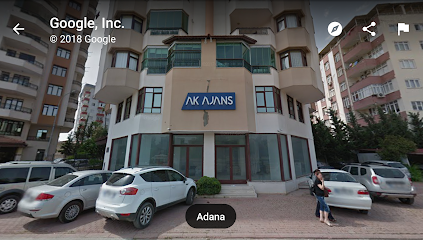
ŞAL PARDESÜ
Explore the elegant collection at Şal Pardesü, a premier women's clothing store in Seyhan, showcasing modern and traditional Turkish fashion.
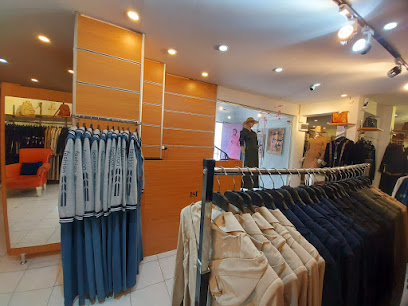
İncibutik
Explore stylish trends and unique clothing selections at İncibutik in Çukurova, Adana - a fashion destination for every traveler.
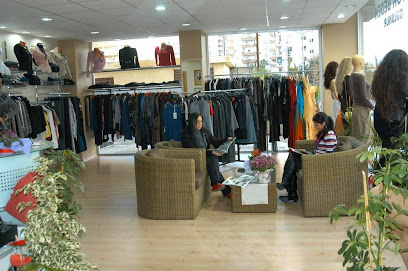
Lili's Home
Discover unique souvenirs and local treasures at Lili's Home in Seyhan, Adana - a perfect gift shop for travelers seeking a piece of Turkish culture.

Bihediyecim
Explore Bihediyecim, Seyhan's premier souvenir store, offering unique local crafts and gifts that embody the spirit of Adana.

Romance Mağazası
Discover unique gifts and souvenirs at Romance Mağazası, a charming store in Seyhan, perfect for tourists seeking a taste of local culture.

Olessa
Explore Olessa in Seyhan, the perfect gift shop for unique home goods and local crafts that embody the spirit of Adana.

Boutiqueen
Explore Boutiqueen in Çukurova for unique fashion and local crafts that embody the spirit of Adana, perfect for every discerning traveler.

Fashion D Boutique
Discover unique styles and trends at Fashion D Boutique in Seyhan, where fashion meets local charm.

Eksibir Store
Discover unique fashion pieces at Eksibir Store in Seyhan, Adana, blending local charm with contemporary styles for an unforgettable shopping experience.
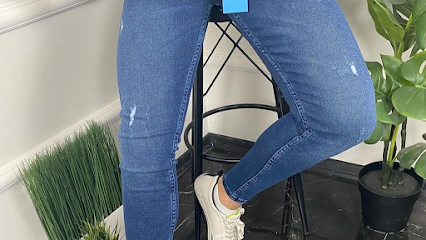
Essential bars & hidden hideouts
La Noche Gastro Pub
Experience the vibrant nightlife of Adana at La Noche Gastro Pub, where gourmet cuisine meets lively entertainment in a unique setting.
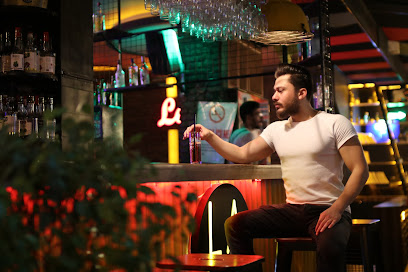
Paddy's Irish Pub
Experience the warmth of Irish hospitality at Paddy's Irish Pub in Seyhan, Adana, where tradition meets vibrant nightlife and delicious cuisine.
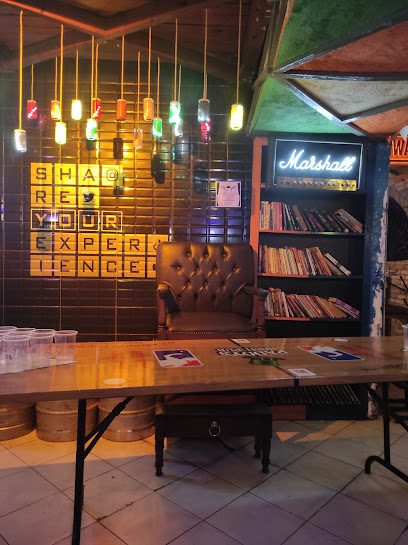
Newport İrİsh Bar
Discover Newport Irish Bar in Seyhan for an authentic Irish pub experience, featuring a cozy atmosphere, delicious drinks, and lively entertainment.
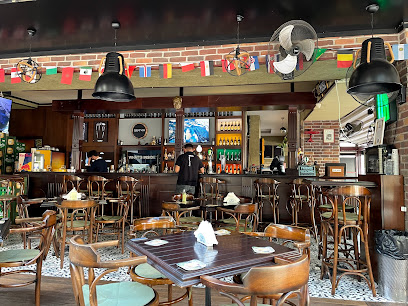
Sir Winston Pub
Discover the lively ambiance and diverse drink selection at Sir Winston Pub, a local favorite in the heart of Kurtuluş, Adana.
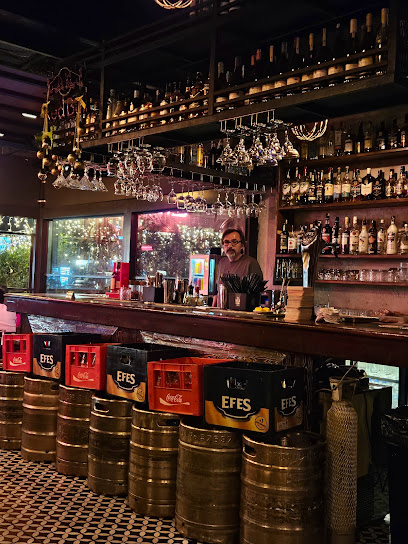
Sess Restaurant&Bar
Discover the lively nightlife at Sess Restaurant & Bar in Çukurova, Adana, where exquisite cocktails and vibrant ambiance await.
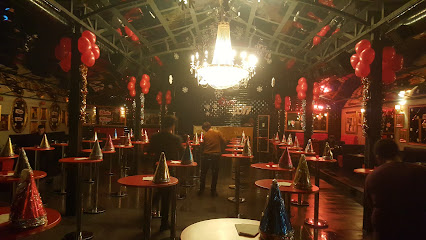
Lokal Cafe & Bistro
Discover the culinary delights at Lokal Cafe & Bistro in Seyhan, where comfort food meets artisanal coffee in a cozy atmosphere.

Kütük Pub
Discover the vibrant nightlife of Çukurova at Kütük Pub, where affordable drinks and a cozy atmosphere await you.
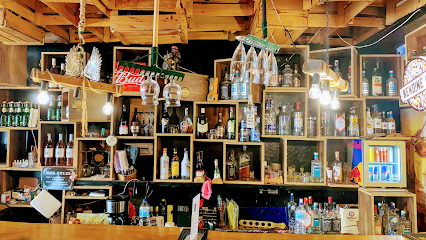
Moby Dick Pub
Experience the vibrant nightlife of Seyhan at Moby Dick Pub, where great drinks and a friendly atmosphere await every visitor.
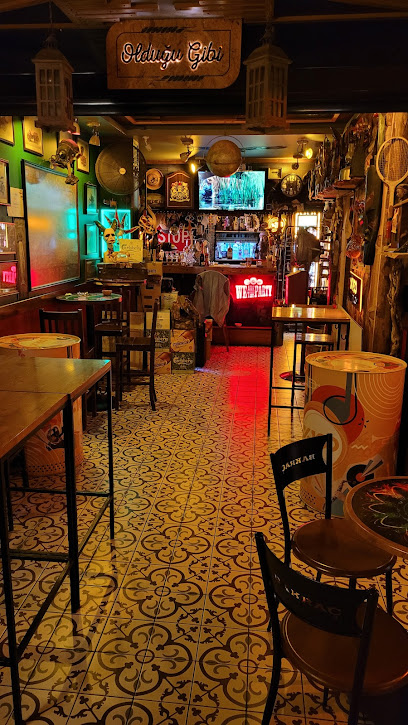
Red House Pub Adana
Discover the lively spirit of Adana at Red House Pub, where live music, delicious food, and great drinks come together for an unforgettable night.
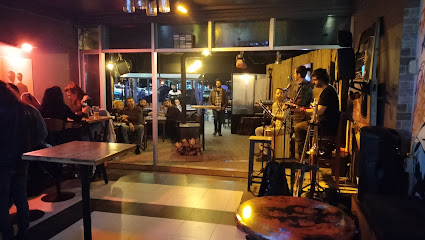
JJ Pub Adana
Discover the vibrant nightlife and live music scene at JJ Pub Adana, a must-visit for anyone exploring the lively culture of Adana.
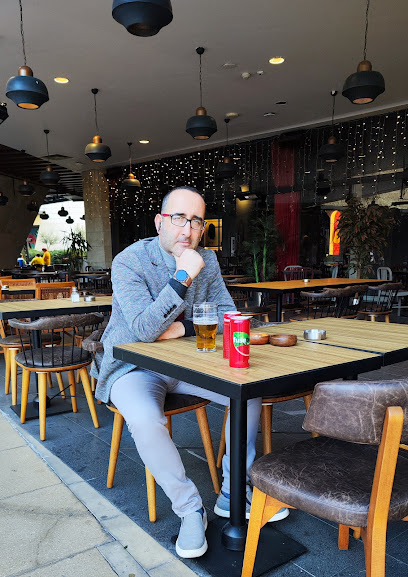
Pick-Up Bar
Discover the vibrant nightlife at Pick-Up Bar in Seyhan, where delightful drinks and a lively atmosphere await every visitor.
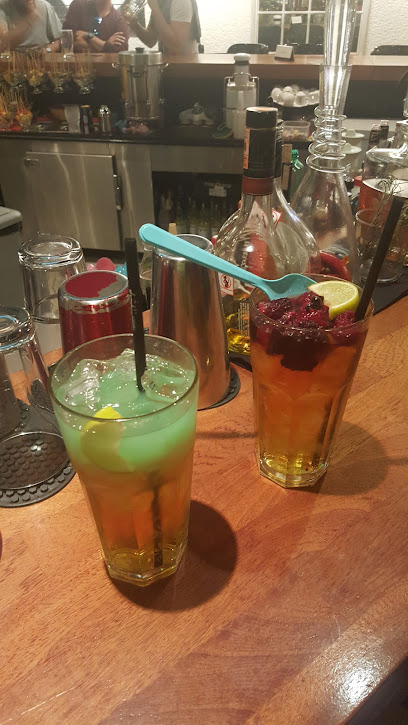
BUBBA CAFE & BAR
Discover the vibrant taste of Seyhan at Bubba Cafe & Bar, a charming gastropub offering delightful dishes and a lively atmosphere.
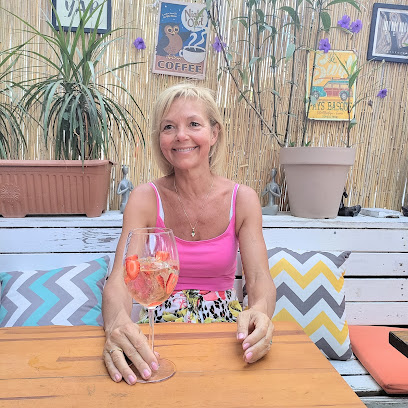
St. Patrick's Irish Pub
Discover the vibrant atmosphere and authentic flavors of Ireland at St. Patrick's Irish Pub in Seyhan, Adana, where every visit feels like a celebration.
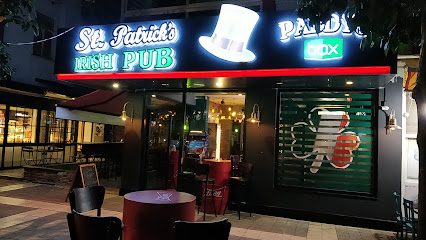
Dedikodu Bar
Experience the vibrant nightlife of Adana at Dedikodu Bar, where great drinks and lively conversations come to life.
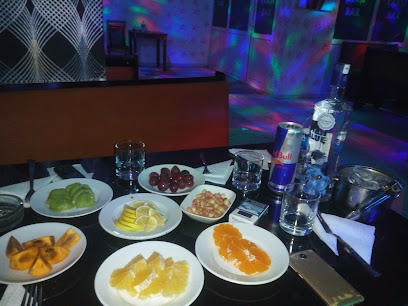
Local Phrases
-
- HelloMerhaba
[Mer-ha-ba] - GoodbyeHoşçakal
[Hosh-cha-kal] - YesEvet
[Eh-vet] - NoHayır
[Ha-yuhr] - Please/You're welcomeLütfen
[Loot-fen] - Thank youTeşekkür ederim
[Teh-sheh-koor eh-deh-reem] - Excuse me/SorryÖzür dilerim
[O-zoor dee-leh-reem] - How are you?Nasılsınız?
[Nah-suhl-suh-nuhz] - Fine. And you?İyiyim. Siz?
[Ee-yee-eem. Sehz] - Do you speak English?İngilizce konuşuyor musunuz?
[Een-gee-leez-cheh ko-noo-shu-yor moo-soo-nooz] - I don't understandAnlamıyorum
[Ahn-lah-muh-yor-um]
- HelloMerhaba
-
- I'd like to see the menu, pleaseMenüyü görmek istiyorum, lütfen
[Meh-noo-yu gur-mek is-tee-yo-room, loot-fen] - I don't eat meatEt yemem
[Eht ye-mem] - Cheers!Şerefe!
[Sheh-reh-feh] - I would like to pay, pleaseÖdemek istiyorum, lütfen
[Uh-deh-mek is-tee-yo-room, loot-fen]
- I'd like to see the menu, pleaseMenüyü görmek istiyorum, lütfen
-
- Help!Yardım edin!
[Yar-duhm eh-deen] - Go away!Uzaklaş!
[Oo-zahk-lahsh] - Call the Police!Polisi arayın!
[Poh-lee-see ah-rah-yuhn] - Call a doctor!Doktor çağırın!
[Dohk-tor chah-yuh-ruhn] - I'm lostKayboldum
[Kah-yohl-doom] - I'm illHastayım
[Hah-stah-yuhm]
- Help!Yardım edin!
-
- I'd like to buy...Almak istiyorum...
[Al-mak is-tee-yo-room] - I'm just lookingSadece bakıyorum
[Sah-deh-je bah-kuh-yo-room] - How much is it?Kaç lira?
[Kach lee-rah] - That's too expensiveBu çok pahalı
[Boo choak pah-ha-luh] - Can you lower the price?Fiyatı indirebilir misiniz?
[Fee-ya-tuh in-deh-reh-bee-leer mee-see-neez]
- I'd like to buy...Almak istiyorum...
-
- What time is it?Saat kaç?
[Sa-at kach] - It's one o'clockSaat bir
[Sa-at beer] - Half past (10)On buçuk
[On boo-chook] - MorningSabah
[Sah-bah] - AfternoonÖğleden sonra
[O-leh-den ah-sor-ah] - EveningAkşam
[Ahk-shahm] - YesterdayDün
[Doon] - TodayBugün
[Boo-goon] - TomorrowYarın
[Yah-ruhn] - 1Bir
[Beer] - 2İki
[Ee-kee] - 3Üç
[Ooch] - 4Dört
[Dohrt] - 5Beş
[Behsh] - 6Altı
[Ahl-tuh] - 7Yedi
[Yeh-dee] - 8Sekiz
[Seh-keez] - 9Dokuz
[Doh-kooz] - 10On
[Oon]
- What time is it?Saat kaç?
-
- Where's a/the...?... nerede?
[Neh-reh-deh] - What's the address?Adres nedir?
[Ad-rehs neh-deer] - Can you show me (on the map)?(Haritada) gösterebilir misiniz?
[(Ha-ree-tah-da) gur-steh-reh-bee-leer mee-see-neez] - When's the next (bus)?Bir sonraki (otobüs) ne zaman?
[Beer son-rah-kuh (oh-toh-booos) neh zah-mahn] - A ticket (to ....)Bir bilet (....'ya)
[Beer bee-let (....'yah)]
- Where's a/the...?... nerede?
History of Adana
-
Adana's history dates back to the Neolithic age, with archaeological evidence suggesting human settlements as early as 6000 BC. During the Hittite era, Adana was an important city within the Hittite Empire. Known as Uru Adaniya, it played a significant role in the region's political and economic landscape.
-
Adana flourished under Roman rule, becoming a vital city in the province of Cilicia. The construction of the Taşköprü (Stone Bridge) over the Seyhan River in the 2nd century AD is a testament to Roman engineering prowess. During the Byzantine period, Adana continued to be a significant administrative and military center.
-
In the 7th century, Adana fell under Arab control following the Muslim conquests. The city became part of the Umayyad and later the Abbasid Caliphates. In the 11th century, the Seljuks conquered Adana, introducing Turkish influence to the region. The city's strategic importance was evident throughout these periods.
-
From the 12th to the 14th centuries, Adana was part of the Armenian Kingdom of Cilicia. The city prospered as a trade and cultural hub, benefiting from its position on the trade routes between Europe and the Middle East. The Armenians left a lasting cultural imprint on the region.
-
Adana was incorporated into the Ottoman Empire in 1517. Under Ottoman rule, the city saw significant development, including the construction of mosques, baths, and other infrastructure. The Great Mosque, built in the 16th century, is a notable example of Ottoman architecture in Adana.
-
In the late 19th and early 20th centuries, Adana became a major center for the cotton industry, earning the nickname 'Cotton Capital of Turkey.' The city played a crucial role during the Turkish War of Independence. In recent decades, Adana has grown into a modern metropolis, balancing its rich historical heritage with economic growth.
-
Adana is renowned for its vibrant culture, including the annual Adana Film Festival and the International Sabancı Theater Festival. The city's culinary heritage, particularly its famous Adana kebab, reflects a rich blend of influences from different eras and cultures. Traditional crafts, music, and dance also play a pivotal role in Adana's cultural landscape.
Adana Essentials
-
Adana is well-connected by air, road, and rail. The main gateway is Adana Şakirpaşa Airport (ADA), which offers both domestic and international flights. From the airport, the city center is just a short taxi or shuttle ride away. Adana is also accessible by train, with services from major Turkish cities like Istanbul and Ankara. For those traveling by road, Adana is connected via major highways and intercity bus services.
-
Public transportation in Adana includes buses, minibuses (dolmuş), and trams. The Adana Metro is a convenient and efficient way to navigate through the city. Taxis are readily available and relatively inexpensive. For a more local experience, consider renting a bicycle or walking, particularly in the central areas where many attractions are located. Car rentals are also available for those looking to explore the surrounding regions.
-
The official currency in Turkey is the Turkish Lira (TRY). Credit and debit cards are widely accepted in hotels, restaurants, and shops in Adana. However, it is advisable to carry some cash, especially for small purchases or in more remote areas. ATMs are plentiful and can be found throughout the city, including at the airport and major shopping centers.
-
Adana is generally a safe city for tourists. However, like any urban area, it is important to take standard precautions. Avoid walking alone at night in unfamiliar areas, and be cautious with your belongings in crowded places. Areas like Seyhan and some parts of Yüreğir have higher crime rates and should be visited with caution. Always stay aware of your surroundings and trust your instincts.
-
In case of emergency, dial 112 for medical assistance, 155 for police, and 110 for fire services. Adana has several hospitals and clinics that provide emergency medical care. It is highly recommended to have travel insurance that covers medical emergencies. Pharmacies (eczane) are widely available for minor health issues and over-the-counter medications.
-
Fashion: Do dress modestly, especially when visiting religious sites. Avoid overly revealing clothing. Religion: Do respect local customs and traditions. When visiting mosques, remove your shoes and cover your head if you are a woman. Public Transport: Do be respectful and give up your seat to elderly passengers. Don't eat or drink on public transport. Greetings: Do greet people with a handshake. A slight nod of the head is also a sign of respect. Eating & Drinking: Do try local delicacies and accept food offerings graciously. Don't refuse hospitality, as it is considered impolite.
-
To experience Adana like a local, visit the vibrant markets such as the Büyük Saat and Kazancılar Bazaar, where you can buy fresh produce and traditional goods. Engage with locals, as they are often friendly and willing to share stories about the city's history and culture. Don't miss trying Adana kebab, a local culinary delight. For a unique experience, take a stroll along the Seyhan River and visit the historical Taşköprü (Stone Bridge).
Trending Landmark in Adana
Nearby Cities to Adana
-
Things To Do in Goreme
-
Things To Do in Cappadocia
-
Things To Do in Famagusta
-
Things To Do in Protaras
-
Things To Do in Ayia Napa
-
Things To Do in Kyrenia
-
Things To Do in Nicosia
-
Things To Do in Konya
-
Things To Do in Larnaca
-
Things To Do in Alanya
-
Things To Do in Batroun
-
Things To Do in Bcharre
-
Things To Do in Troodos
-
Things To Do in Byblos
-
Things To Do in Limassol













